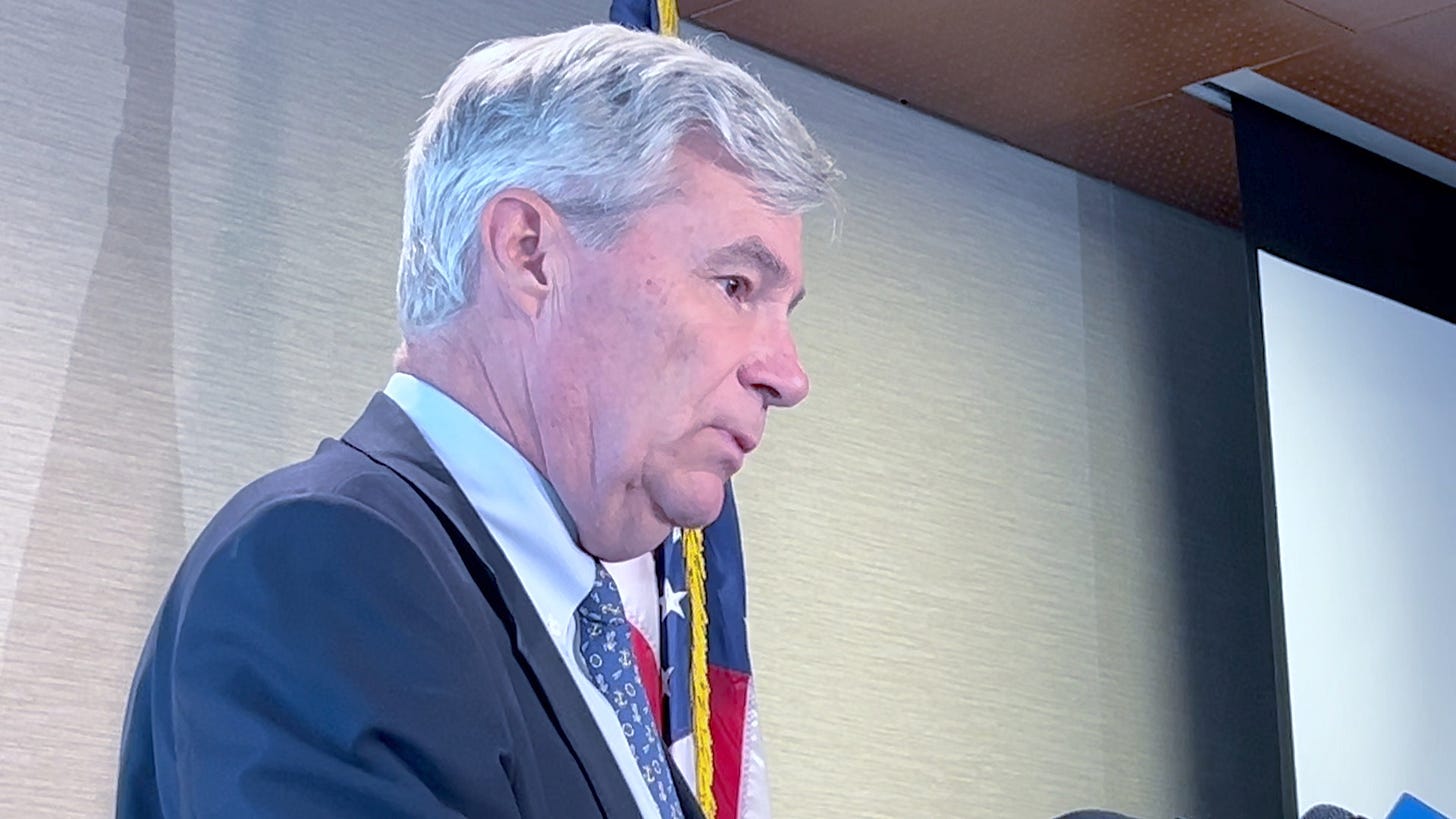Senator Whitehouse notes that Biden's call for Supreme Court reforms mirrors his bills
“The Senate should act urgently to heed the President’s call by voting on my Supreme Court Ethics, Recusal, and Transparency Act."
United States Senator Sheldon Whitehouse (Democrat-RI), Chair of the Judiciary Subcommittee on Federal Courts, today cheered a Washington Post op-ed by President Joe Biden urging Congress to take action on Supreme Court ethics and term limits reform. Vice President Kamala Harris also endorsed the President’s proposal.
Senator Whitehouse is the lead Senate sponsor of the Supreme Court Ethics, Recusal, and Transparency Act, which advanced through the Judiciary Committee last July and awaits a vote on the Senate floor and the Supreme Court Biennial Appointments and Term Limits Act.
Senator Whitehouse held a press briefing at the Rhode Island T.F. Green International Airport in Warwick this morning. Here’s the video:
Senator Whitehouse issued the following statement:
“An organized scheme by right-wing billionaires and special interests to capture and control the Supreme Court, aided by gobs of dark money flowing through the confirmation process and a billionaire-funded luxury gifts program for certain justices, has resulted in an unaccountable and ethics-free Court out of step with the American people. President Biden forcefully made clear today that the scandal-plagued Supreme Court is in desperate need of reform to restore its legitimacy in the eyes of the public, and I’m glad to see Vice President Harris also support this strong proposal. This Court has proven time after time that it cannot police itself, as Justice Kagan recently acknowledged.
“The Senate should act urgently to heed the President’s call by voting on my Supreme Court Ethics, Recusal, and Transparency Act. The bill would establish a binding, enforceable ethics process with real disclosure requirements and fact-finding to ensure the highest Court in the land no longer has the lowest standards of ethics of anywhere in the federal government. My term limits bill—which establishes commonsense, 18-year term limits for Supreme Court justices while preserving constitutional protections for judicial independence—should also be front and center as a potential solution.
“Let’s get this done. The American people deserve a Supreme Court they can trust.”
The Senator dismissed the effort of New York Representative Alexandria Ocasio-Cortez of New York, who introduced articles of impeachment against Supreme Court Justices Clarence Thomas and Samuel Alito, saying, “Obviously they’re going no place” but the chances of getting a Republican-controlled House to pass his bills or to get on board with President Biden’s agenda seems equally unlikely. Whitehouse did note that if Democrats take the House in November, it is more likely that a full and fair investigation into Thomas and Alito will happen.
The Supreme Court Ethics, Recusal, and Transparency Act would require Supreme Court justices to adopt a binding and enforceable code of conduct, create a mechanism to investigate alleged violations of the code of conduct and other laws, improve disclosure and transparency when a justice has a connection to a party or amicus before the Court, end the practice of justices ruling on their conflicts of interests, and require justices to explain their recusal decisions to the public.
Whitehouse’s Supreme Court Biennial Appointments and Term Limits Act would establish effective 18-year term limits and regularized appointments for Supreme Court justices. Under the legislation, a new justice would take the bench every two years and spend 18 years participating in all Supreme Court cases, after which the justice would be limited to hearing a few constitutionally required cases.
Congress has an appropriate and well-established role in overseeing the judiciary and updating ethics laws that apply to federal officials, including federal judges. Congress passed the Ethics in Government Act and judicial recusal law, which expressly apply to Supreme Court justices. Congress created through statute the Judicial Conference, which administers financial disclosure laws for the entire judiciary. Congress also has the authority to regulate and make exceptions to which cases justices can hear, outside of a small category of cases required by the Constitution.
Advertisement:






This is a plan I can support. How they vote in their private lives is their business. When presented with a case, there can be nothing political. They (supposedly) know the laws of the land and are as beholden to them as are we.